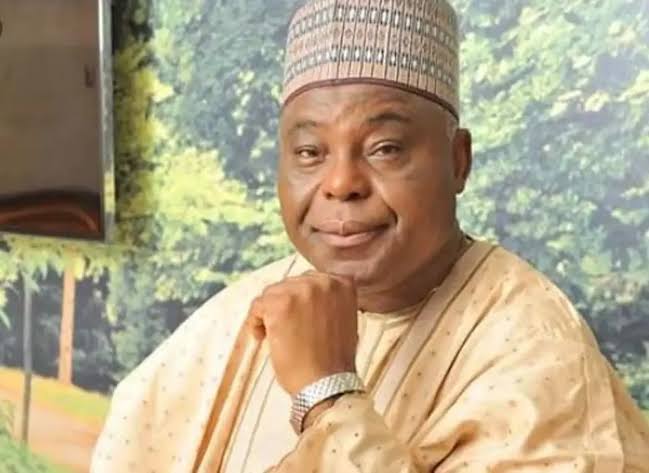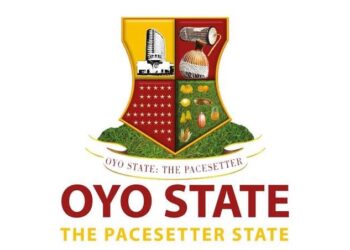
Former president, Dr. Goodluck Jonathan and other prominent leaders yesterday paid glowing tributes to late media mogul, High Chief Raymond Dokpesi, founder of DAAR Communications, celebrating his enduring legacy in the Nigerian media industry.
The inaugural Dokpesi Annual Diamond Lecture held in Abuja provided a platform to reflect on Dokpesi’s significant contributions to Nigeria’s media landscape and his unwavering commitment to the nation’s development.
Dignitaries shared personal anecdotes and insights, underscoring the profound impact Dokpesi had on journalism, education and public discourse in Nigeria.
In his keynote speech, Jonathan described Dokpesi as a transformative media pioneer, philanthropist, and close friend.
Reflecting on their relationship, Jonathan said he felt like the world was against him after losing the 2015 presidential election, but that the late Dokpesi comforted him.
“It is not easy to lose an election as a president. You would think the whole world is against you.” He revealed that the late Dokpesi consoled him after the defeat, and encouraged him to keep hope alive.
“Dokpesi invited me before I handed over. I remember what he said to me when I lost the election,” he said. There were so many senior Nigerians who spoke. After I listened to all the conversations, he congratulated me and encouraged me to look beyond the election. This is how I commemorated that session.
“That communication gave me hope and helped me not necessarily for the transition hour ahead of me but also in my spiritual life as a private citizen. If you read my book, My Transition Hours, I explain it more elaborately,” he said.
Jonathan emphasized Dokpesi’s critical role in advancing independent media and promoting accountability, justice, and responsible governance across Africa. He compared Dokpesi’s dedication to that of a steadfast teammate, saying, “Dokpesi was the kind of dedicated and patriotic figure who gave everything for his party and his ideals.”
The former president also spoke about Dokpesi’s deep contributions to philanthropy, highlighting his investments in human and community development. “I believe his legacy of service to God and humanity will continue to speak for him,” Jonathan added.
Jonathan recounted their shared moments after he left office, as detailed in his memoir My Transition Hours.
He highlighted the essential role of communication in national development, urging journalists to prioritize balanced reporting and combat the spread of misinformation. “This lecture series calls on us to honor Dokpesi by using media to drive inclusivity and sustainable development.”
Former vice president, Arc. Namadi Sambo, also spoke, stating that the story of broadcasting in Nigeria would never be complete without recounting Dokpesi’s contributions and exploits. “Those of us who are still here have a chance to be similarly impactful in the evolving story of Nigeria,” Sambo said.
The former vice president noted that Dokpesi’s legacy in nation-building would remain part of Nigerian history. “AIT is my favorite station, and I always make sure to watch its live programs and the 9 o’clock news on a daily basis,” he added.
Sambo further praised Dokpesi’s energy and pioneering spirit, which helped usher in the age of independent broadcasting in Nigeria. “His passion for Nigeria, his investments here, his nurturing of talent, and his creation of a great and enduring institution are among the greatest legacies he left behind, and we must all strive to emulate them,” Sambo said.
Chairman of the occasion, Wakili Adamawa, Amb. Dr. Hassan Adamu, commended the Nigerian Institute of Public Relations, under the leadership of Dr. Ike Neliaku, for this laudable initiative. “We are fully with you on this project,” he said.
Adamu added, “Perhaps no one should be happier than I am in this gathering, for several reasons. Apart from my dear brother Alhaji Bamanga Tukur, no one related as closely to the Late High Chief Raymond Dokpesi as I did, especially in terms of our shared contributions to the maritime industry, politics, and the progress of our region.”
Adamu reflected on his relationship with Dokpesi, saying, “Our relationship transcended friendship; we were family. I always called him simply ‘Raymond,’ never adding his titles or surname. To me, he was just Raymond, a brother and fellow patriot in both the maritime industry and politics.”
He recalled Dokpesi approaching him for support and counsel when he wanted to venture into private broadcasting, a then-untapped area in Nigeria. “What impressed me most was how determined and surefooted he was. Nothing could have planted doubts in his mind or discouraged him. That was vintage Raymond Dokpesi, the man we are all honoring today.”
“These are the legacies of people like Dr. Raymond Dokpesi, which make him immortal. Even though private broadcasting today faces major challenges, such as regulatory hurdles and economic constraints, its role in national development cannot be underestimated,” he said.








